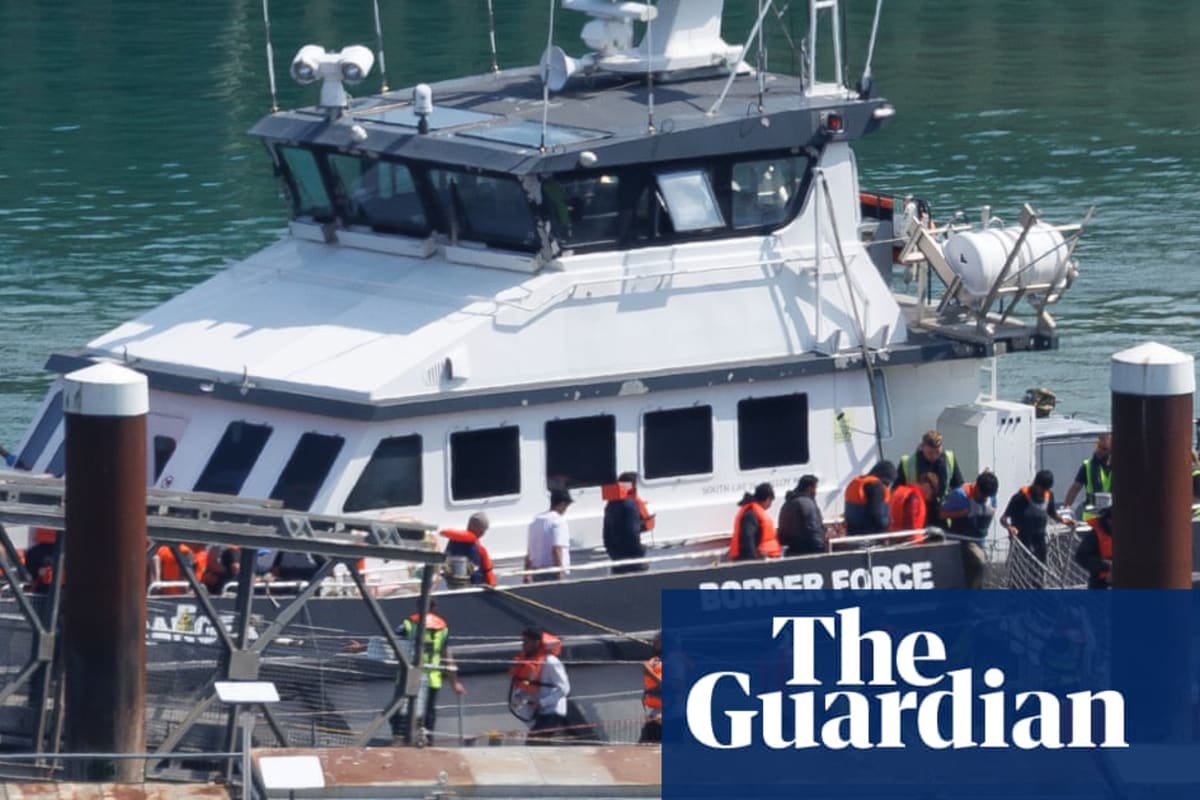UK Detains 100+ Channel Crossers; 'One-In, One-Out' Plan in Action

The UK government has confirmed the detention of over 100 individuals who arrived on its shores via small boats crossing the English Channel in recent days. This action follows the implementation of the controversial "one in, one out" scheme, a policy intended to deter irregular migration.
Under this scheme, authorities aim to remove one migrant already in the UK for every new migrant arriving illegally, theoretically expediting deportations, particularly to France. However, sources within the government, as reported by The Guardian, acknowledge that the establishment of promised safe and legal routes to the UK remains unrealized, creating a chasm between policy aspiration and practical reality.
The Home Office has yet to release concrete details or timelines for these alternative pathways.
The government's approach has drawn sharp criticism from humanitarian organizations and immigration advocates They argue that the "one in, one out" policy lacks the necessary framework to comprehensively address the multifaceted issues driving individuals to undertake dangerous sea crossings Concerns have been raised regarding potential human rights violations, the insufficient consideration given to the individual circumstances of asylum seekers, and the overall fairness of the process Amnesty International and the Refugee Council have both issued statements condemning the policy The absence of accessible safe and legal routes is viewed as particularly problematic, effectively funneling vulnerable individuals into life-threatening situations For readers in Southeast Asia, this news resonates deeply, given the region's own complex history and ongoing experiences with migration and refugee flows Many Southeast Asian nations grapple with similar challenges related to irregular migration, often driven by factors such as economic hardship, political instability, conflict, and the increasing impact of climate change on livelihoods and displacement The UK's approach, while presented as a solution to its own border control challenges, raises fundamental questions about the ethical and practical implications of increasingly restrictive migration policies globally Similar hardline policies implemented in some Southeast Asian countries have faced criticism from human rights organizations for failing to adequately address the root causes of migration and neglecting the fundamental rights of migrants and asylum seekers The lack of established safe routes to the UK reflects a broader global trend, with many nations struggling to strike a balance between securing borders and fulfilling their humanitarian obligations to protect vulnerable individuals seeking refuge This absence of comprehensive and ethically sound approaches often results in the perpetuation of irregular migration and potentially contributes to an increase in the number of people undertaking dangerous journeys The UK's emphasis on rapid deportations also raises concerns about the adequacy of due process and the extent to which individual asylum claims are being thoroughly and fairly assessed, particularly in light of international legal obligations under the Refugee Convention The efficacy of the "one in, one out" policy remains highly debated Will it genuinely serve as a deterrent to irregular migration, or will it simply divert migration routes, creating new and unforeseen challenges Critics argue that the policy primarily addresses the symptoms of migration, rather than tackling the underlying root causes that compel individuals to leave their homes in search of safety and opportunity Experts at the Migration Observatory at the University of Oxford suggest that such policies often have unintended consequences and can be ineffective in the long term The long-term success of this strategy, therefore, remains uncertain and requires rigorous evaluation Furthermore, reports of mounting frustration and desperation among migrants stranded in Calais highlight the conditions that drive individuals to risk their lives in attempts to cross the Channel These reports underscore the urgent need for a more holistic and compassionate approach that addresses both the "push" factors (reasons for leaving their home country) and the "pull" factors (reasons for seeking refuge in a specific destination), while ensuring the safety, dignity, and well-being of all individuals involved The continued absence of accessible safe routes points to a critical gap in the UK's current migration policy and calls for a more humane and effective strategy In conclusion, the detention of over 100 migrants highlights the complex and multifaceted challenges of managing international migration in the 21st century The UK's "one in, one out" scheme, while intended to facilitate rapid deportations, raises significant ethical and practical concerns and necessitates a thorough examination of its long-term effectiveness and its alignment with international human rights standards The lack of safe and legal routes remains a central point of contention, demanding further review and the development of alternative solutions that effectively balance border security with humanitarian considerations This situation offers valuable insights for Southeast Asian nations as they navigate similar challenges within their own regional contexts and strive to develop migration policies that are both effective and humane
